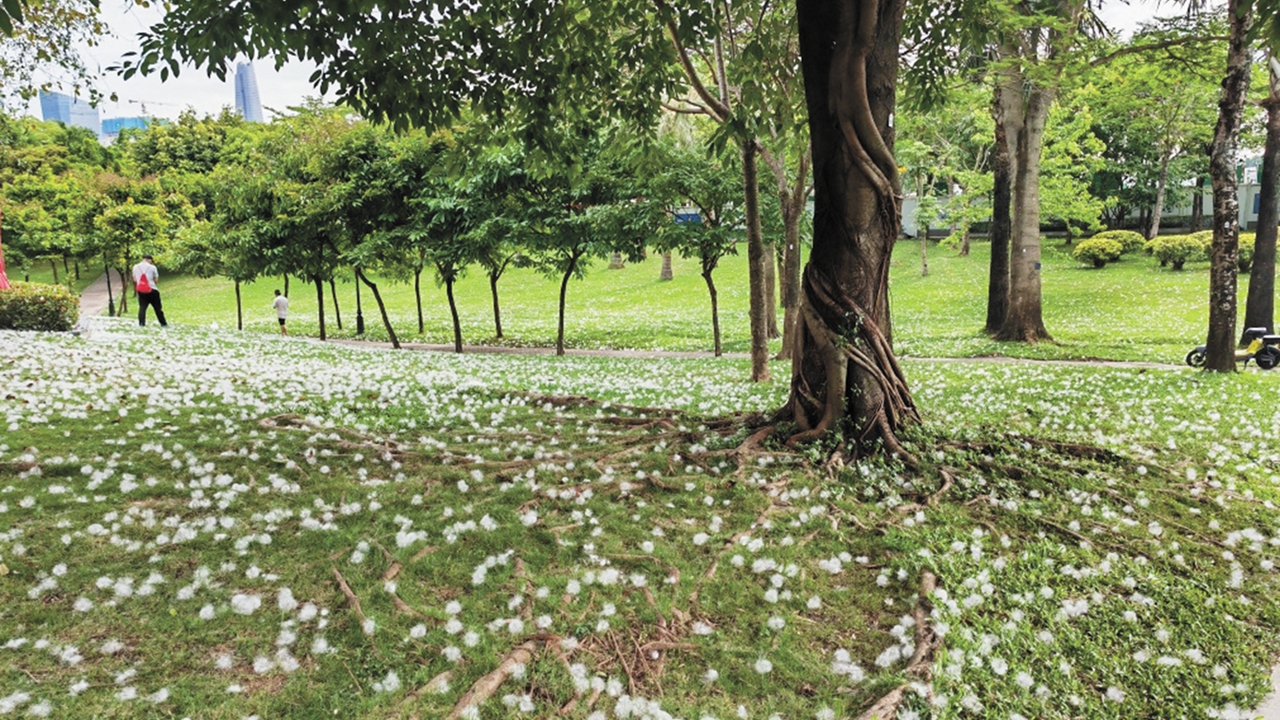Tips against fluffy catkins for allergy sufferers
Writer: Claudia Wei | Editor: Zhang Zhiqing | From: Shenzhen Daily | Updated: 2025-05-19
As the annual cottonwood season arrives, Shenzhen residents are once again faced with a flurry of “flying snow,” especially challenging for those with respiratory sensitivities.
These fluffy seeds, produced by a variety of plants in the willow family, including poplar and willow, are primarily made of cellulose, similar to cotton, and typically drift through the air from April to May. Relying on the wind to disperse their seeds, these cotton-like particles are a common nuisance in urban areas.

Cotton-like particles cover the ground in Lianhua Hill Park, Futian District. File photo
In Guangdong, particular attention should be paid to the Ceiba speciosa tree, also known as the silk floss tree. Blossoming from October to December and maturing from April to May, the tree sheds its outer covering upon fruit ripening, releasing cotton-like fluff reminiscent of cotton balls. As these fruits mature, individuals with sensitivities may experience severe reactions. Inhalation of the fluff can trigger symptoms such as runny noses, coughing, and asthma attacks. Contact with the fluff on the skin may induce allergic responses like itching and reddened conjunctiva.
Precautions are advised: Wear masks, goggles, and long sleeves to block catkins effectively when outdoors. It is also important to remove the cotton residue thoroughly before entering home. Wash your face with clean water and rinse your nasal and oral cavities with saline solution.
If cotton residue gets into the eyes, rinse immediately with flowing water. Avoid rubbing the eyes to prevent cornea scratches and subsequent infection.
Those prone to allergic tendencies such as allergic rhinitis, dermatitis, conjunctivitis, and asthma are encouraged to reduce outdoor activities during the “flying snow” season. When outdoors, avoid peak catkin dispersal hours between 10 a.m. and 4 p.m. Instead, choose early morning, evening or times after rains when fluff levels are lower.
At home, keep window screens closed. If catkins do enter, promptly clean them with a vacuum cleaner or spray water to dampen the particles before sweeping.
Finally, be aware that catkins are highly flammable. Do not litter cigarette butts outdoors, and promptly remove any accumulated catkins to prevent fire hazards.